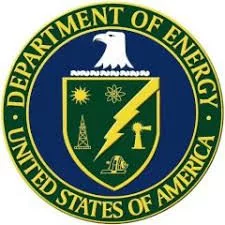
(ND Ag Connection) – By Scout Nelson
In a significant move for U.S. energy development, Senator John Hoeven introduced nominee Chris Wright to the Senate Energy and Natural Resources Committee as the proposed Secretary of Energy.
This introduction highlights Wright’s extensive background in the energy sector, spanning three decades, and his pivotal role in innovating hydraulic fracturing mapping, which spurred commercial shale oil development, particularly in the Bakken region.
During the hearing, Hoeven underscored the necessity of adopting advanced technologies like carbon capture, utilization, and storage (CCUS) to harness America’s abundant natural resources effectively while enhancing environmental stewardship. Wright’s confirmation is seen as crucial for promoting an all-encompassing energy policy, which Hoeven believes will solidify the U.S. as a leader in global energy production.
North Dakota, under Hoeven’s leadership, has been at the forefront of CCUS technology, working to decode and deploy this technology to revolutionize clean energy production, particularly from coal-fired power plants.
This effort includes legal, tax, and regulatory frameworks that facilitate these advancements. Notably, North Dakota achieved a milestone by becoming the first state with regulatory primacy for Class VI wells, ensuring secure CO2 storage.
Further reinforcing this initiative, Hoeven has managed to secure federal grants for projects like Project Tundra, aimed at enabling the Milton R. Young power plant to capture and store up to 4 million metric tons of CO2 annually.
Similarly, the Dakota Gasification synfuels plant stands out as the world’s largest coal-based carbon capture endeavor, capturing over 2.25 million metric tons of CO2 each year.
This commitment to advancing CCUS technologies not only positions North Dakota as a leader in clean energy but also aligns with global trends where countries are increasingly adopting U.S. developed technologies to improve their energy production with reduced environmental impacts.
Hoeven’s advocacy for Wright’s confirmation is a strategic step towards enhancing these technologies’ domestic and international application, aiming to make the U.S. a dominant force in sustainable energy.
